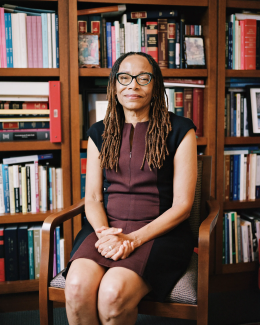
TIME Magazine recently published their 2025 edition of "The Closers", a list recognizing Black leaders working to end the racial equity gap. Lauded Africana Studies Professor Dorothy Roberts was among them. Acknowledging her work to abolish family policing, she was described as an advocate who "thinks we need a new way to keep kids safe." You can read an excerpt from the TIME article on her below:
Dorothy Roberts is an academic, 2024 MacArthur “genius” grantee, and author who is advocating for what, at first blush, seems like a really crazy idea: the abolition of child-protective services. CPS is a catchall term for the system of government agencies that step in when they deem children to be in danger, sometimes removing them from their homes. But after decades of study, Roberts, 58, has concluded that this system of what she calls “family policing” is doing far more harm than good, especially for Black families.
The problem, as Roberts sees it, is that CPS does not protect children. “This is not a system that supports families,” she says. “It does a terrible job at keeping children safe. It's really a system that terrorizes families and tears them apart and doesn't provide what families need.” It’s also a system that affects Black children much more than white children; research has consistently shown that Black families are almost twice as likely as white families to be investigated by CPS.
One of the issues is that when CPS comes to a family’s home, it is responding to a report of abuse and neglect. “It doesn't go into action when people go to it asking for help,” says Roberts. “It goes into action when parents or other family caregivers are accused of maltreatment, which usually means they simply have failed to provide for their children the housing or clothing or food that their children need.” In other words, CPS too often shows up at the homes of parents who are impoverished rather than neglectful. And instead of helping provide for the children’s needs, it separates them, even before the case has been fully investigated.
